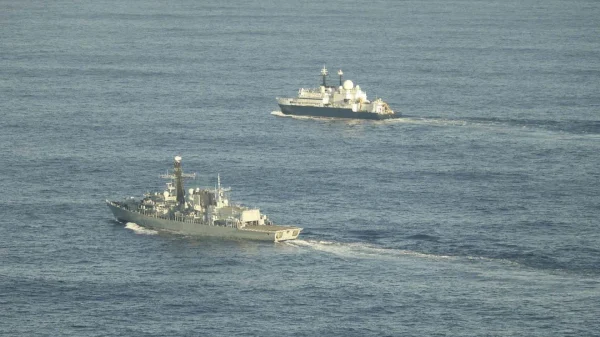As the conflict in Ukraine continues to pose geopolitical challenges, Europe finds itself at a critical juncture in ensuring its energy security. In this tumultuous landscape, the significance of the Neptun Deep Black Sea project (led by OMV Petrom and the Romanian state-owned company Romgaz) emerges as a beacon of hope, offering a pathway towards enhanced energy independence and stability for the continent. Neptun Deep is the largest natural gas project in the Black Sea, with an investment of €4 billion– writes Irene Max.
Located in the vast depths of the Black Sea, the Neptun Deep gas field (includes an area of 7,500sq. km situated around 160km from the shore) represents a promising opportunity for Europe todiversify its energy sources and reduce its reliance on volatile regions. Spearheaded by Romania’s offshore exploration efforts, in partnership with international energy companies, this ambitious project holds the potential to significantly bolster Europe’s energy resilience.
Against the backdrop of the Ukrainian conflict, the importance of Neptun Deep cannot be overstated. The ongoing turmoil has underscored the vulnerability of traditional energy supply routes, exposing Europe to potential disruptions and geopolitical maneuvers. By tapping into domestic resources and leveraging the vast reserves of the Black Sea, Europe can insulate itself from external pressures and safeguard its energy security.
Regional cooperation and stability
Beyond its immediate economic and strategic benefits, Neptun Deep project holds the potential to foster regional cooperation and stability. By engaging neighboring countries (Hungary, Slovakia, Ukraine, Moldova) in energy partnerships, Europe can promote dialogue and collaboration, mitigating tensions and fostering a conducive environment for peace and prosperity. However, realizing the full potential of Neptun Deep requires concerted efforts from all stakeholders. Romanian Government provides all the necessary regulatory framework and incentives to facilitate investment and development.
Hungary is interested in the possibility of importing gas from offshore production from the Black Sea. Furthermore, Péter Szijjártó, Minister of Foreign Affairs and Trade, stated, in Bucharest, that “we’re going to look at the Neptun Deep project as a big chance for us to diversify our energy sources, so we want to take advantage of as much gas as we can import from this source.”So, for Hungary, Neptun Deep means also assuring energy independence, by reducing imports from Russia.
Neptun Deep project aligns with the European Union’s broader strategy of promoting sustainable energy practices and reducing carbon emissions. As the world transitions towards cleaner energy sources, natural gas remains a crucial component of the energy mix, serving as a bridge towards a more renewable future. By investing in projects like Neptun Deep, Europe can ensure a reliable supply of natural gas while simultaneously advancing its climate objectives.
Neptun Deep is of particular importance not only for Romania, but also for Hungary, Slovakia, Austria, Ukraine and the Republic of Moldova. Also, the success of Neptun Deep is important for the transformation of Bulgaria from an energy-dependent country to one capable of ensuring its own consumption. But, the exploitation of gas reserves in the Romanian Exclusive Economic Zone (EEZ) may be endangered by Russia’s hybrid activities. Romania’s energy infrastructure development underline the need for Romania’s NATO and EU allies to comprehend the energy and political implications of the Neptun Deep exploitation in this particular regional context.
Romania fully supports the Neptun Deep project on all levels. From a legislative point of view, Romania has generated a transparent and predictable framework to ensure the progress and success of the project. Moreover, governmental decisions generates an attractive financial framework for the partners involved in the project.
Also, in terms of regional security, in the context of the unjustified aggression of the Russiaagainst Ukraine, Romania has started ambitious projects to ensure the security of the crew and operating ships involved in the Neptun Deep project. In this regard, it is notable that Romaniahas developed new endowment programs for unmanned systems and ISR capabilities.
Between Russia’s hybrid activities and environmental NGOs actions
Besides Russia’s hybrid activities, there are also some environmental NGos that could threaten European energy security and resilience. Without solid proofs, environmental NGOs implies that the Neptun Deep project presents a series of notable risks, from threatening vulnerable species in the Black Sea to intensifying the effects of climate change. But they remain voiceless and cloudy about the financial network that funds their actions and that has contrary interests regarding European energy security and resilience.
In this sense, the question arises whether the actions of those environmental NGOs are justified or only work for interest groups to block European initiatives in providing energy.
Conclusion
Neptun Deep Black Sea project represents a vital lifeline for European energy security amidst the uncertainties of the Ukrainian conflict. By harnessing the vast reserves of the Black Sea and diversifying its energy sources, Europe can reduce its dependence on volatile regions and bolster its resilience against geopolitical disruptions. Now more than ever, the imperative for action is clear: Europe must seize the opportunity presented by Neptun Deep to safeguard its energy future and ensure a more stable and prosperous tomorrow.
The success of gas exploitation in the Neptun Deep perimeter will encourage OMV Petrom to start similar actions to build critical energy infrastructure in Bulgarian waters (gas exploitation in the Khan Asparuh perimeter), meaning the removal of Russia’s energy blackmail against countries such as Moldova or Bulgaria.




















